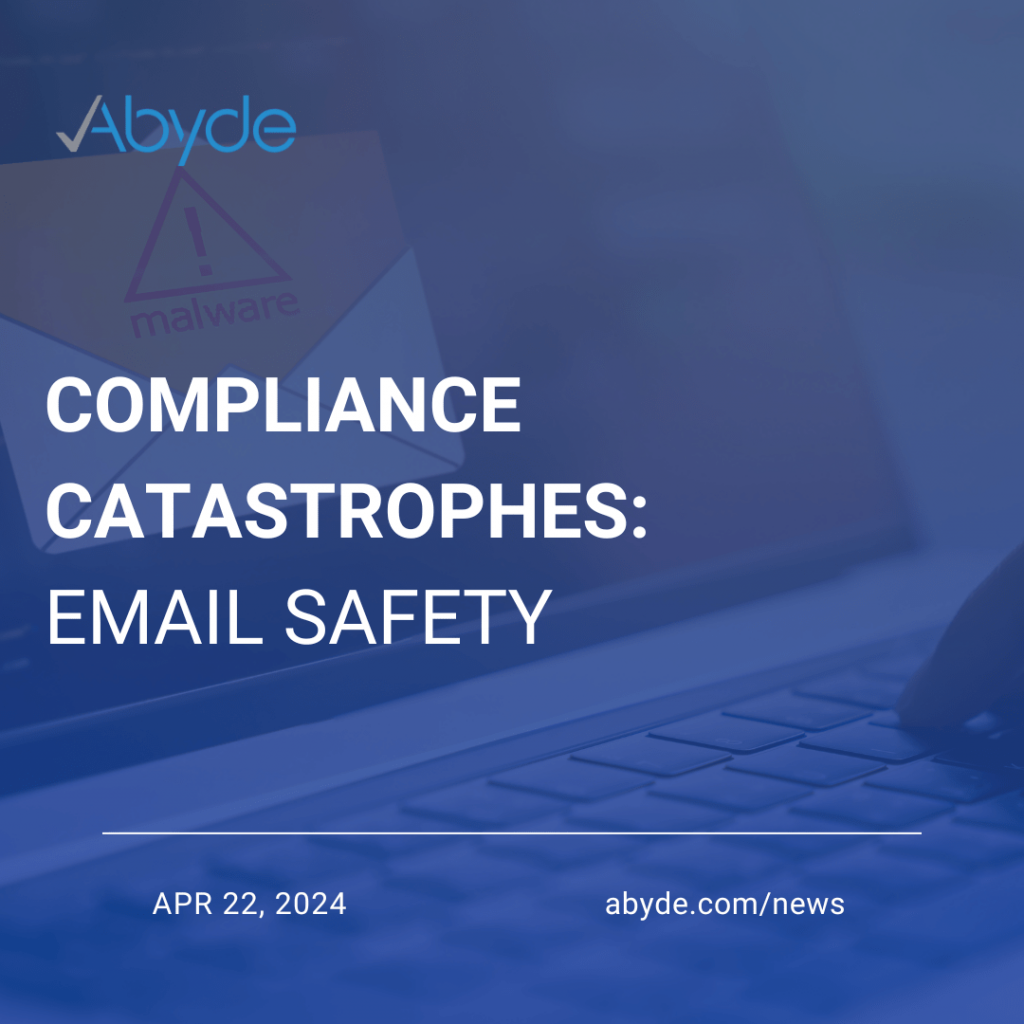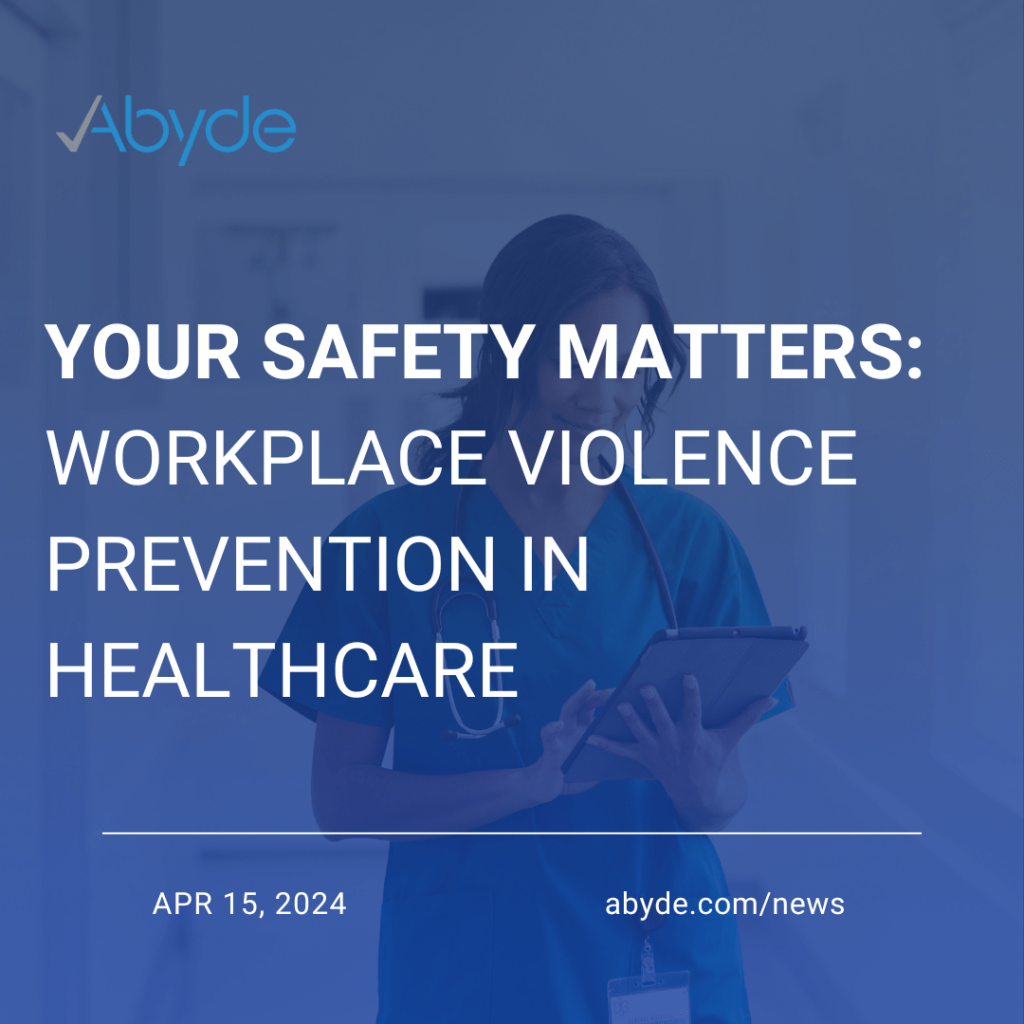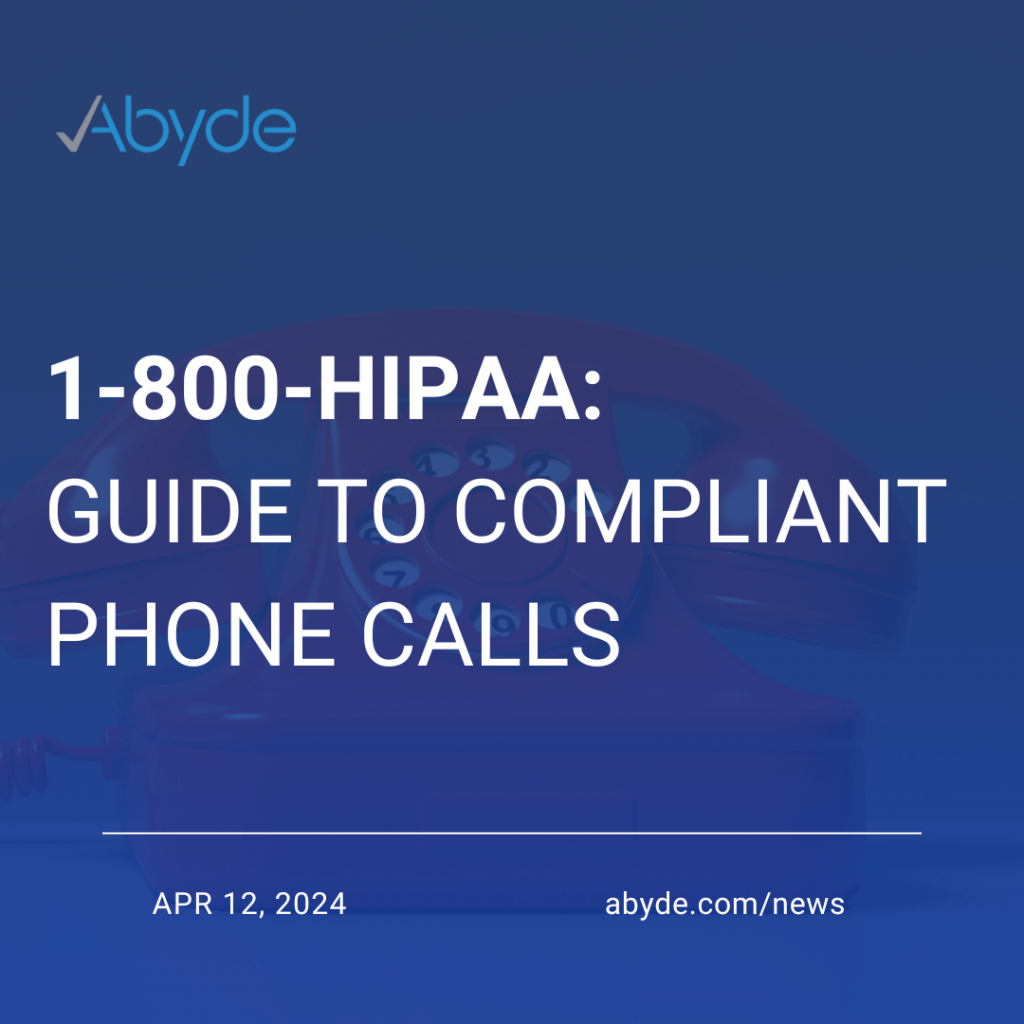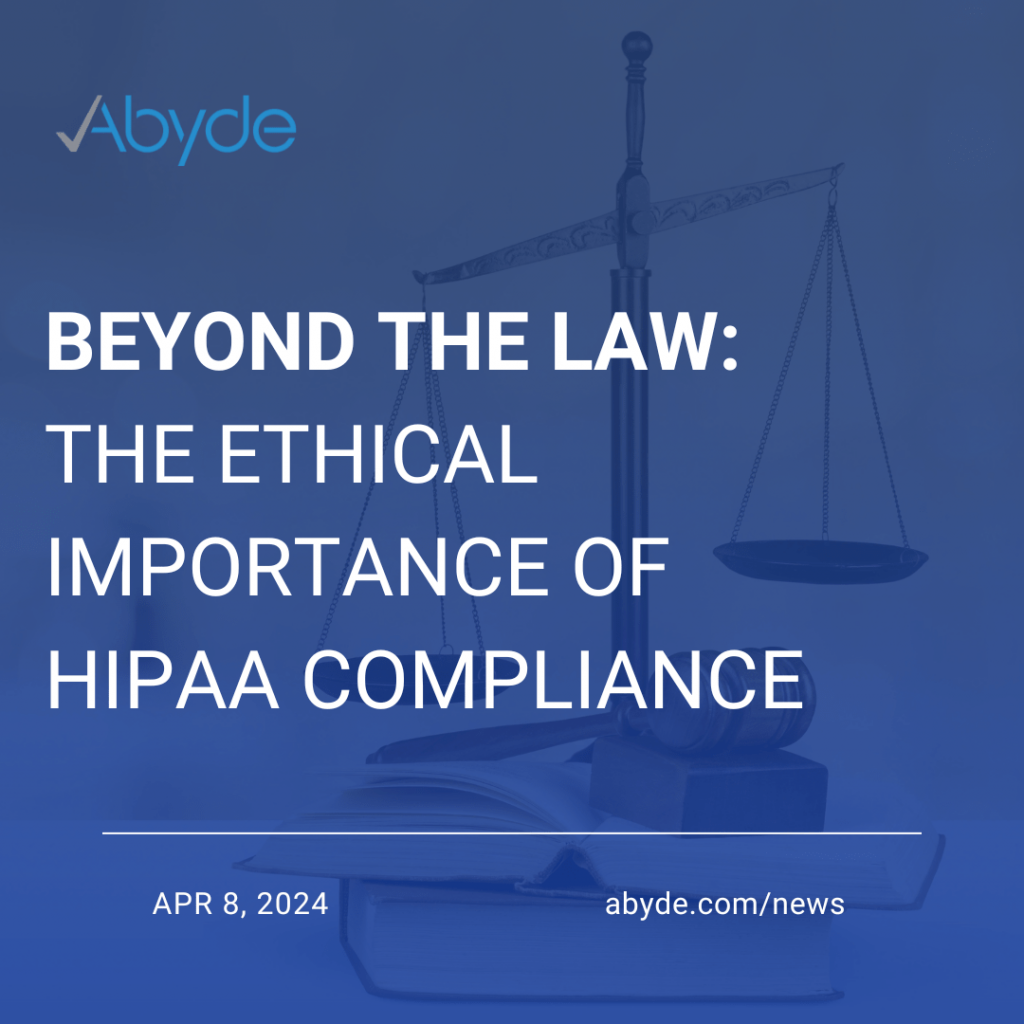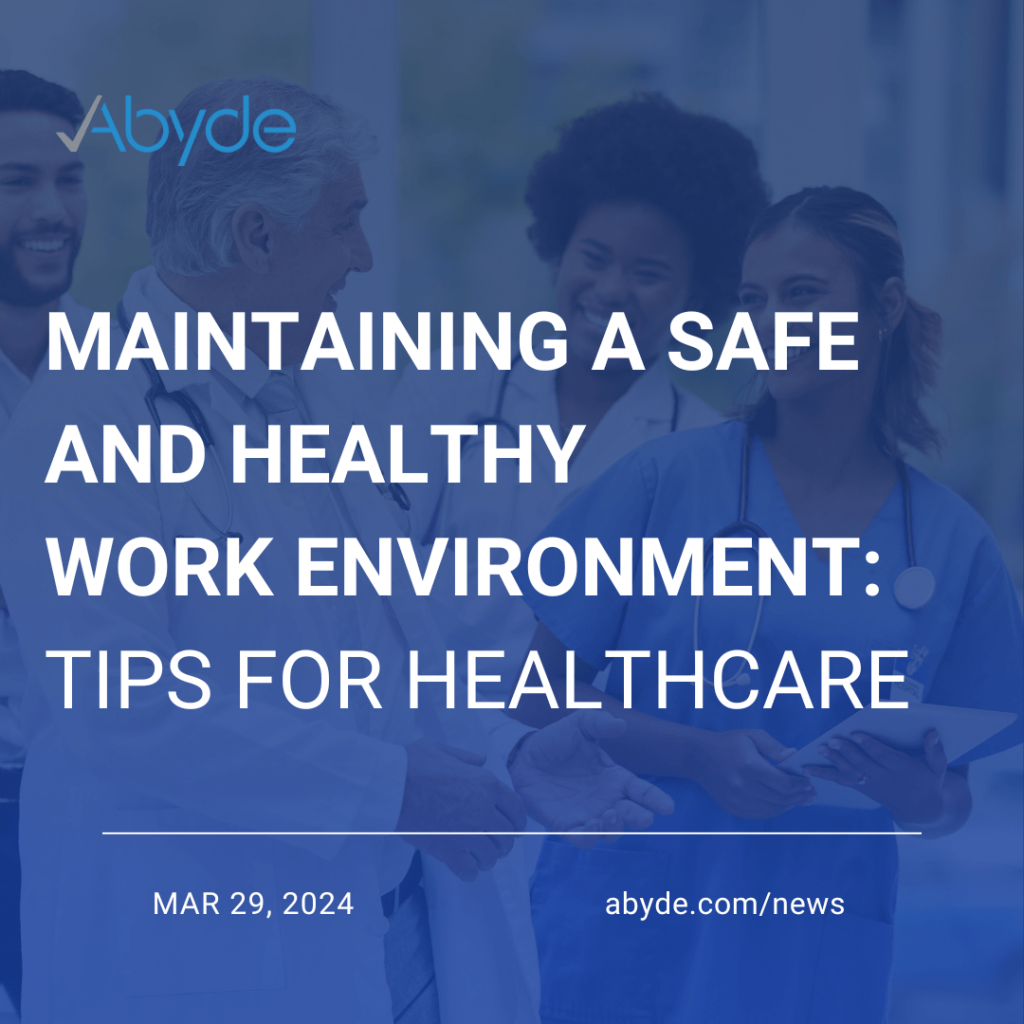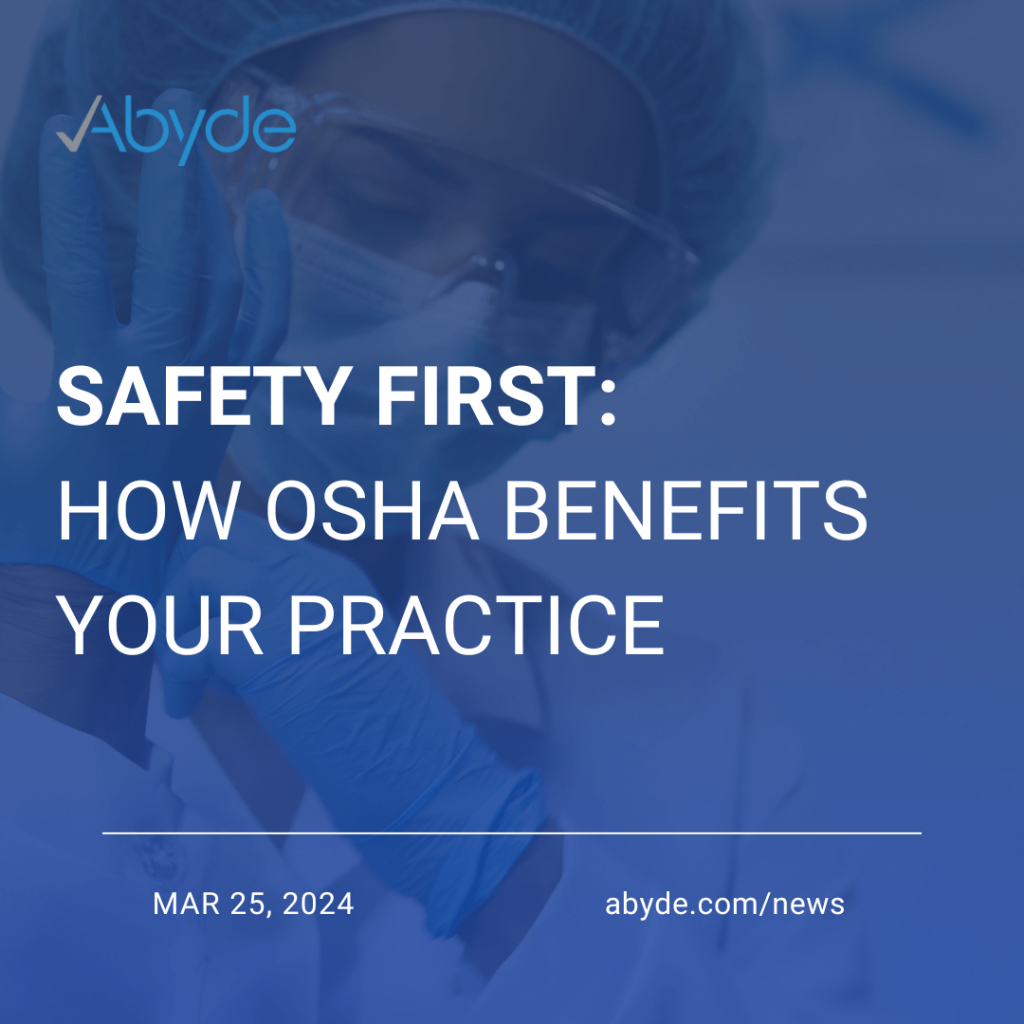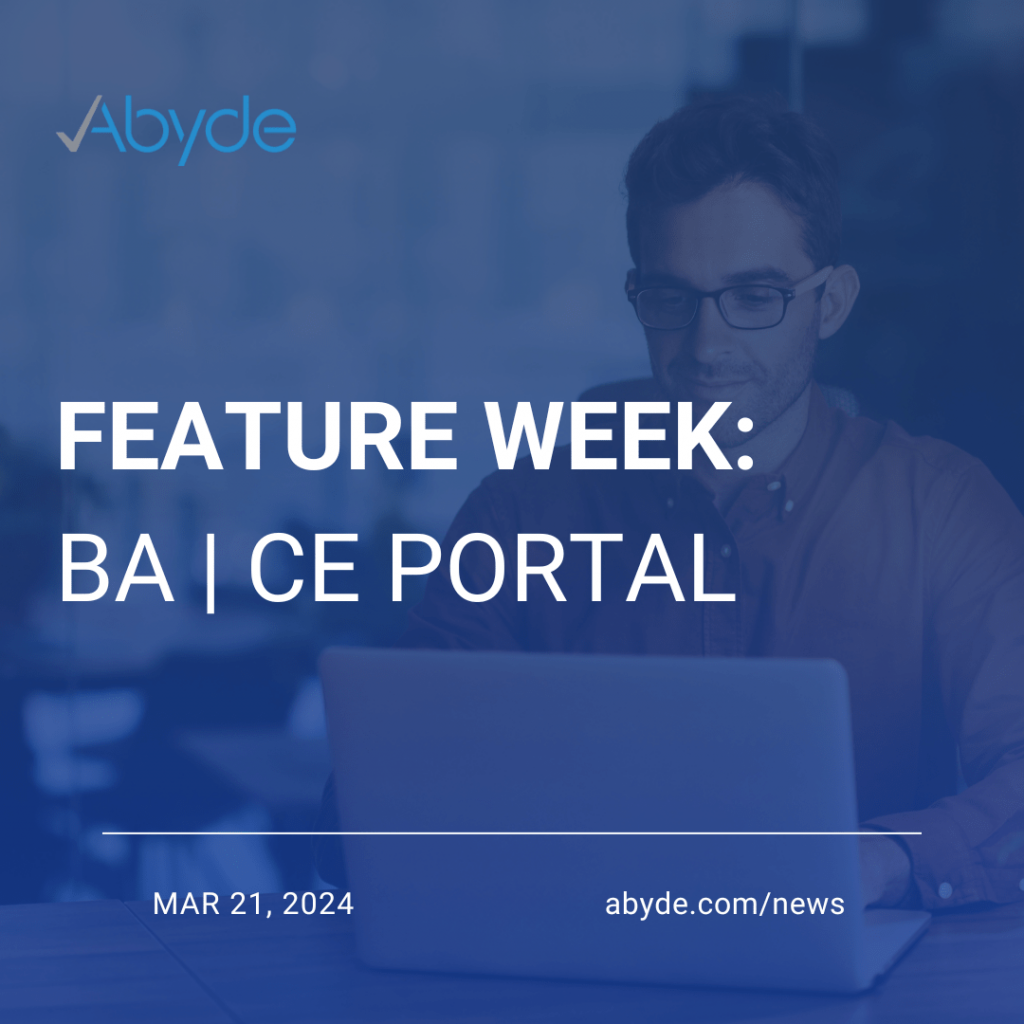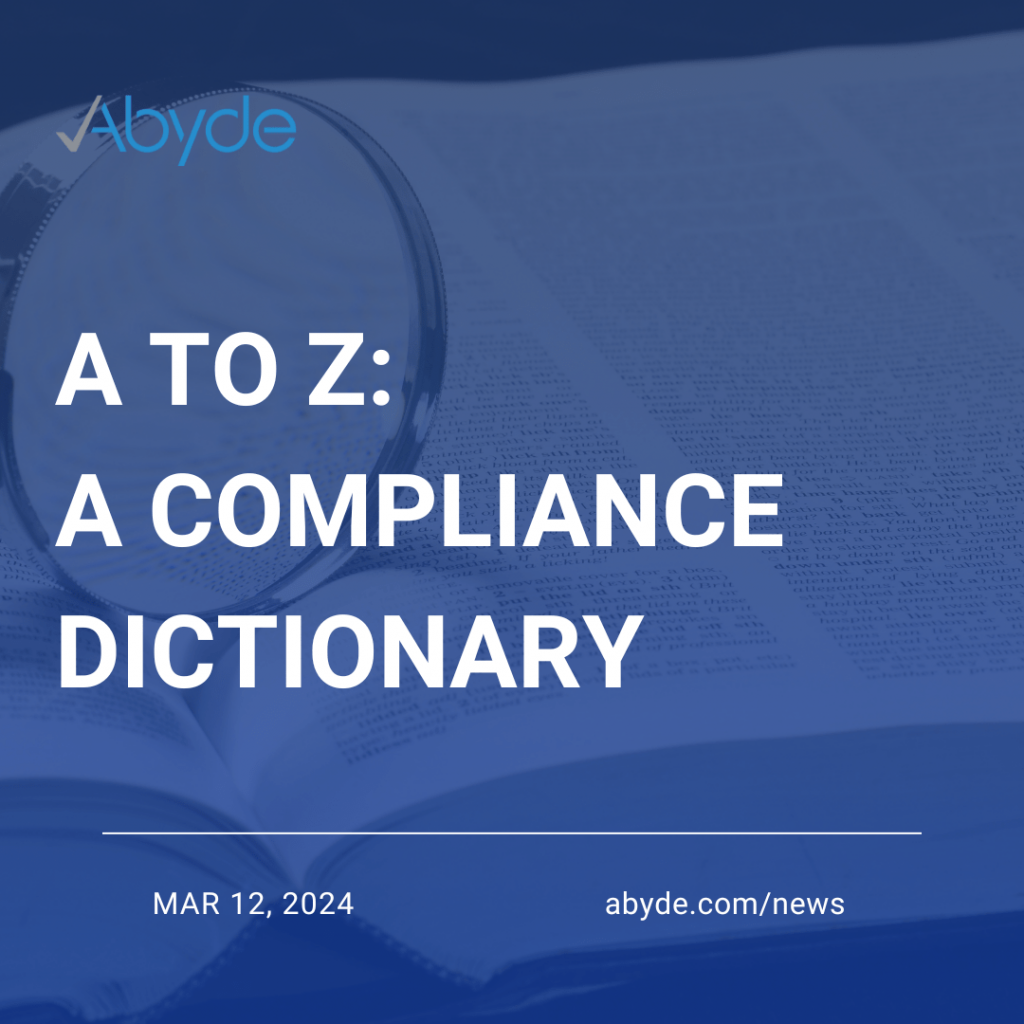April 22, 2024 Good morning! We hope we can cheer up your Monday blues with the announcement of our new educational series, Compliance Catastrophes: real-ish world examples of nightmare scenarios! Throughout this week, we’ll be releasing blogs and videos on common breaches of Protected Health Information (PHI) in healthcare, giving you the tips you need to stay secure. We’re starting our series with one of the most common HIPAA breaches: email scams. Email scams are very prevalent, with 91% of cyberattacks beginning with a phishing email. Phishing attempts are the most common form of cybercrime, with 3.4 BILLION spam emails sent daily. Now, before we get too far, let’s clear up any misconceptions. Phishing attempts are unfortunately not a Saturday night getaway on a boat with your friends catching fish, it’s much more like casting a lure of fake urgency or importance to try and ‘fish’ for personal information, like PHI. You might think that you could never fall for a phishing scam, but let me tell you, it happens quite often. Let me introduce you to the star of the week, Catastrophe Cathy. A One-way Ticket to a Breach Cathy was scrolling through her email, and she couldn’t believe her eyes! Her boss sent her an email offering her a week’s vacation to Italy! All she had to do was claim it by clicking the link listed at the bottom of the email. She was sold! It looked real; it said it was from her boss, Bob, and it even had his email signature! As she clicked the link, the malware began to work its nefarious magic – infecting her computer and getting access to PHI. Her dreams of seeing the Leaning Tower of Pisa came crashing down. Once she realized there was no trip. She panicked! What was she going to do? Email Safety 101 Now, we can be like Cathy if we aren’t careful when checking our emails! Falling for these phishing scams affects over 300,000 people a year, yielding over $50 million in losses. First, an always good rule of thumb: If it’s too good to be true, it’s not. Sorry, or scusa (sorry in Italian) Cathy! Next, always check who is sending the email. While it looked like it came from Bob the Boss, if she looked at the email address, she would have seen it came from Stevethescammer@email.com! Hackers pretending to be someone else at your organization is a very common practice known as spoofing. Lastly, if you see any odd links or attachments, never click them, report them as spam, delete them, and, if applicable, forward them to your organization’s phishing email! Phishing scams have also made a recent detrimental impact on healthcare. The OCR settled its first phishing cyber attack investigation, costing the Lafourche Medical Group $480,000! Reel in Control Now, if you find yourself falling for an email scam, the first thing you need to do is to alert your team. You might be embarrassed, but it’s brave to admit you’re wrong, ensuring others don’t fall for a similar attack, too. The most important step right now is to disconnect your device from the internet. Think of it like putting up a “closed for business” sign. This cuts off the hackers’ access and prevents them from finding more information on your network. Loop in your IT team or IT provider, and follow company procedures for a cyber attack. Of course, notify patients affected by the breach, and report the breach in your Abyde software and to the OCR. Also, since it is a phishing attempt, you can report it to the FTC. To learn more about common breaches, stay tuned to our blogs and videos this week! Follow us on social media to be the first to see the latest compliance news, and if you have any questions, email us at info@abyde.com.
Smile with Confidence: Promoting Safety in Dentistry
April 16, 2024 Happy Toothsday! Okay, okay, yes, we know that was bad. Regardless, we hope you’re having a lovely beginning of the week. Working in dentistry can be very rewarding, You know that confident feeling of rocking a fantastic smile? In dentistry, you get to create that feeling for people every day. However, dentistry comes with challenges, like working with sharps daily and the possible exposure to bloodborne pathogens. Here at Abyde, we’re all about prevention and safety. Today, we’re jumping right into promoting safety in dental offices. By following the right procedures, you can focus on what’s important: creating dazzling smiles! Gear Up for Grins When working at your practice, having the proper Personal Protective Equipment (PPE) is vital. PPE encompasses all the protective gear you need to wear to ensure your safety while working with patients. This includes equipment like: While your masks and gloves might not be the most fashionable statement pieces, by rocking the correct PPE, you can minimize exposure to germs and other dental hazards, keeping you safe. Let’s face it (pun intended!), dentistry can get a little…messy at times. That’s where PPE comes in! Face shields and glasses act as your splash guards, keeping your eyes protected from any flying fluids or debris. Gloves also minimize contact, keeping your hands covered when delivering exceptional patient care. This way, you can focus on creating beautiful smiles without worrying about exposure. Syringe Savvy Using sharps is part of the dental world. That’s why we recommend the latest and safest tools. Think of it this way: those fancy safety features on your dental devices aren’t just bells and whistles – they’re game-changers! Sure, change can be a bit daunting, but these innovations are designed to make your practice safer, smoother, and ultimately, more awesome. Some of the common safety tools include: Bite-sized Learning When protecting your staff, training is key. With excellent training, your staff can be equipped with the knowledge they need to be safe. This includes mastering the proper steps for sharps and bloodborne pathogens, two of the most common safety issues in a dentist’s office. These situations can be tricky, but with the proper training, your team can conquer any challenge with ease. How Abyde Can Help We know that paperwork and regulations can feel like a cavity that just won’t quit. That’s why we make it simple. Abyde is a software solution that makes compliance easy. With Abyde, we offer a variety of resources to make compliance a breeze, including training on everything you need for dental compliance. To learn more about what it takes to be compliant in your dental practice, email us at info@abyde.com and schedule a consultation here.
Your Safety Matters: Workplace Violence Prevention in Healthcare
April 15, 2024 Hi everyone! We hope you had a nice weekend! We’re starting this week with a heavier, but necessary article. We ALL deserve to feel safe and comfortable when at work – no, ifs, ands, or buts. This is especially true for our healthcare workers. It’s a stressful job, and on top of the pressure, they shouldn’t have to worry about violence or unsafe working conditions. Unfortunately, this is not the case. Workplace violence is especially common in healthcare, disproportionately affecting healthcare workers. For example, workplace violence is FIVE more times as likely to occur in private healthcare practices and social assistance programs than in any other industry sector. This is unacceptable. But, hey, here’s a half-glass-full mindset! There’s always a way to change that! We need to create a better workplace for our healthcare employees. Today, we’re diving into the best ways to build a culture of safety and compliance in your practice, so your staff feels empowered and safe. Leading the Charge To ensure a team feels safe and secure in the workplace, their leaders must establish a culture of compliance. While we talk about a culture of compliance often, what does that mean? From leadership, means guiding and ensuring the safety of employees, having clear policies in place, providing worthwhile training, and much more. This behavior is not just after an incident, but continuously, cultivating an environment where staff feels safe and supported. All employees must feel heard and supported in the workplace, encouraging open communication about their experiences and what can be done to make the workplace even better. Employees are the heart of any healthcare setting, and their safety is paramount. To empower them to feel secure, clear reporting methods are crucial. This includes offering multiple channels, like a confidential hotline or online portal, to report any situation that raises a red flag. But safety isn’t a one-time fix. It’s a continuous journey that requires ongoing commitment from leadership. By incorporating these elements, leadership fosters a culture of compliance where staff feels safe and supported at work, knowing their concerns are heard and acted upon, ultimately creating a safer work environment for everyone. Violence? Yeah, No, Gotta Go In part of implementing a culture of compliance, ensure all staff is aware that there is a zero-tolerance policy for violence in the workplace. This policy encompasses all employees, patients, visitors, and in general, anyone who comes into contact with a practice’s employees. This zero-tolerance policy covers everything that goes beyond respectful interactions. By establishing a zero-tolerance policy, you protect your employees. By making clear consequences for workplace violence, your staff can focus on what they do best: healing others. How Abyde Can Help Workplace violence in healthcare is unfortunately an epidemic in the field. For instance, 64% of clinicians have felt physically unsafe at work. At Abyde, we believe a strong culture of compliance shouldn’t be a burden. That’s why we offer revolutionary compliance software that simplifies the process for everyone. With Abyde, all employees become active participants in creating a safe and secure work environment. By making compliance easier, Abyde empowers your staff with the knowledge and resources they need to be successful. This translates to a more confident and engaged workforce. No one deserves to feel unsafe at work, and with Abyde, we’re all taking a step towards a safer, more positive work environment for everyone. Get started on building a culture of compliance today! Email info@abyde.com and schedule a consultation here.
1-800-HIPAA: Guide to Compliant Phone Calls
April 12, 2024 Brrring Brrring Brring! It’s your friends from Abyde calling! Pick up! We have some worthwhile tips and tricks to share with you today. While we all love a good chat on the phone when working with Protected Health Information (PHI), it’s key to keep things confidential. That’s why today, pick up our call and learn how your practice can make compliant phone calls. By following our tips, you’ll be a confident phone pro, ready to chat with patients while keeping their privacy a top priority. So, are you ready to answer? Let’s get started! Hello, it’s HIPAA In the digital age, there are numerous ways to connect and share information with patients. Reaching out to patients through the phone is still a common practice, but you need to be able to navigate it safely. First, ensure your phone systems are HIPAA-compliant before sharing any PHI. This includes end-to-end encryption, user authentication, audit control, automatic log-off, and other strong security features. When onboarding with a cloud-based phone service, make sure a Business Associate Agreement (BAA) is signed with the provider, ensuring accountability and liability when it comes to the protection of patient data. Listen, we know you might be itching to chat after your visit – you genuinely care about our patients and their well-being, but there aren’t a ton of reasons to call a patient. While HIPAA restricts casual chit-chat, some of the reasons to call a patient include: Additionally, if you are calling a Business Associate (BA), make sure a BAA is signed before communicating any PHI through the phone. When in Doubt, Leave it Out! When on the phone with a patient or a BA and you’re disclosing PHI, the Minimum Necessary Requirement is at play. As in the name, this standard means only the minimum necessary information about a patient’s health information should be disclosed. FCC, or the Federal Communications Commission has come out and given guidance on HIPAA-compliant phone calls. Keep it short and sweet! Phone calls should be less than 60 seconds or less than 160 characters in text length. And, don’t blow up any patient’s phone with calls! The FCC says patients should only receive three calls a week, or one text a day. To ensure patient privacy and clear communication, keep calls brief and focused. Before sharing any information, take a moment to verify the patient you are speaking with. Phoning Family While it’s only normal for a family to worry about a patient’s health, sharing this information is a different story. Under HIPAA, the patient has to agree for their PHI to be shared with family. Once again, only the minimum information required can be shared. However, if a patient is incapacitated, PHI can be shared with the family if it’s considered in their best interest. Once a patient is lucid again, the patient can retract permission for PHI to be shared with family. Dialing Up Patient Trust Phone calls are a common and effective way to quickly share information with patients. Like anything regarding PHI, it’s vital to stay compliant, keeping patient information secure. By properly handling phone calls at your practice, you’ll strengthen patient trust, improve communication, and reduce compliance risks with the right tools. Abyde can be one of those trusted tools, being a cloud-based solution that streamlines the compliance process. Abyde will assist you in having everything you need to be compliant, keeping you in check and creating a culture of compliance at your practice. To learn more about what your practice needs to do to be compliant, email info@abyde.com, call us at 1.800.594.0883, and schedule a consultation here.
Beyond the Law: The Ethical Importance of HIPAA Compliance
April 8, 2024 It’s Monday! Here’s to the beginning of another awesome week of taking care of patients or running your business! Today, we’re starting the week off with some reflection. While the monetary component of fines is no laughing matter; there’s something even more important than money when it comes to violating compliance standards: eroding personal ethics. Think about it – wouldn’t you rather be known for your integrity and trustworthiness? Not just for avoiding fines, but for doing the right thing because it’s the right thing to do? Your character is what people remember, in business and out. Make it one you’re proud of! HIPAA: Much More Than a Law Many take an oath when you join the medical field as a healthcare worker. This oath details a core principle: first, do no harm. Now, securing a patient’s data might not be the first thing someone thinks of as protecting a patient, but in today’s digital age, safeguarding their data is equally crucial. Let’s face it, seeking medical help often involves sharing deeply personal and sometimes scary details about our health. HIPAA empowers patients by creating a safe space for these conversations, so the last thing a healthcare worker wants to do is erode their trust with non-compliance. With technological advancements, a data breach really can put a patient at risk. A data breach can expose a patient’s most sensitive information – name, address, social security number, medical history. This can make them vulnerable to identity theft, targeted scams, and more. Unfortunately, Protected Health Information (PHI) is at the top of the list for malicious hackers to expose. The value of a health record can be worth as much as $1,000 on the dark web! It’s up to your practice or business to keep patients’ information safe. We’ve seen the repercussions of a violation, not only with the hefty fines but with the years of corrective measures and monitoring a practice or business has to go through. A Corrective Action Plan (CAP) from the OCR can be a major blow to an organization’s reputation. Not only does it expose past non-compliance to patients, but also includes years of close monitoring to ensure a practice or business doesn’t stray off the compliance path. And who wants to be grounded for years? How Abyde Can Help We’re all a patient somewhere! Wouldn’t you want your doctor to take every precaution to keep your information safe? Abyde is a software solution that makes HIPAA easy for your practice or business. We take the complexities of compliance and turn them into a cloud-based solution, with numerous resources all-in-one. The Security Risk Analysis, training, dynamically generated policies and procedures, and much more are all within the software, ensuring you’re on track for compliance. Compliance is so much more than avoiding fines, it’s making sure that every patient you interact with feels safe and secure. To learn more about compliance for your organization, schedule a consultation here for Covered Entities and here for Business Associates.
Maintaining a Safe and Healthy Work Environment: Tips for Healthcare
March 29, 2024 Happy Friday! Cheers to another work week conquered. When at work, we all deserve to feel safe and healthy. Healthcare workers face a unique challenge. You juggle patient care like a pro, but keeping yourself healthy can feel like another battle entirely. Well, we’re here to give you some tips on maintaining a safe and healthy work environment. Safety First! First and foremost, ensure you’re all trained and aware of what you must do to be safe. With software like Abyde, we make training fun! Our entertaining OSHA training challenges the status quo, with interactive activities and videos that can be done at your own pace, keeping your practice open and not in boring training sessions. Get stylish! Personal Protective Equipment (PPE) is required in the workplace, making sure you all have the, maybe not so fashionable, but functional protective gear to handle any situation in healthcare. For instance, gloves are a MUST, keeping healthcare workers and patients safe from germs. Like a dad on a family vacation, make sure your practice has a plan for every situation, keeping everyone on your team on the same page. Having policies and procedures in place allows your practice to be confident and secure in what you must do to keep all employees safe. Don’t know where to start? Don’t worry! As an Abyde user, we make documentation easy, dynamically generating personal policies and procedures for your practice, giving you a game plan on employee safety. Culture of Compliance We preach about a culture of compliance, but what does that mean? A culture of compliance means much more than understanding compliance. Compliance is not like those late nights in college cram studying for an exam, it’s the deliberate actions that keep you and your team safe every day at work. Compliance isn’t a one-time deal, but the daily commitment to making the right choices. Compliance isn’t just about reacting to problems. A proactive approach, like using Abyde, shows your commitment to preventing issues. Tools like our Facility Risk Assessment help identify areas for improvement before they become concerns, keeping your practice complaint. We even help you with this, with our ongoing compliance notifications, keeping your practice always in check. By building out this culture of compliance, your team can feel empowered: confident and secure in where they work, knowing that they have the knowledge and tools to stay safe. This results in a happier and healthier workplace– and who doesn’t love that? To help you maintain a safe and healthy work environment, reach out to your friends at Abyde! Have questions? email us at info@abyde.com and schedule a compliance consultation here!
Don’t Panic: Steps to Take After a Sharps Accident
March 27, 2024 OUCH! Getting pricked by a needle or a sharp object never feels good, especially when you work in healthcare. From the moment you accidentally prick yourself, it’s go-go-go in terms of your safety. Sharps accidents are very common in healthcare. Not only 53% of injuries from disposable syringes affect nurses, but 25% of these injuries impact non-users, like other clinical team members, and even Business Associates (BAs) like waste disposal workers. Since it’s common, It’s super important that you know your game plan if something like this happens. Need some guidance on where to start? Look no further, Abyde has you covered. Stay Calm Everybody, stay calm! To avoid your practice looking like Dunder Mifflin during the fire drill, take some deep breaths. While it’s imperative to start taking care of yourself quickly, staying calm is key. Most of the time, the situation will turn out fine if you take the right steps and follow up with a medical provider. Also, have an Exposure Task Form completed, a preventative measure that lists how your practice handles accidental exposure. With Abyde, we have one ready for you in our software. Let’s Get You Fixed Up Right after the incident occurs, immediately receive First Aid treatment, protecting the wound. Make sure that First Aid equipment is readily available. Then, it’s time for medical attention. By assessing the situation and introducing medical attention, you’re on the right track. Let the doctor taking care of you know your situation, where you work, what kind of sharp it was, and what you might have been exposed to. Depending on the situation, different methods of treatment need to be followed. For instance, if you are exposed to HIV, there is post-exposure prophylaxis, or PEP, which is medication to prevent the contraction of the disease. You need to be on PEP within three days of exposure, so time is of the essence in needlestick injuries. Blood Report Card Now, I know it’s not fun, but it is very important after getting pricked by a needle or sharp to get blood tested. This blood test will let you know your next steps. When getting a blood test, make sure an HBV/HIV Testing Consent due to Accidental Exposure form is filled out. Additionally, get an Accident/Exposure Investigation Report filled out If you’re an Abyde user, we have both conveniently in our OSHA software, making the paperwork process for this easier. Report it! If a sharps injury occurs, make sure that you report it in the Abyde software! We have convenient Work-Related Injury & Illness and Sharps Injury logs that have all the information needed to report an injury. This information will also be added to your yearly required OSHA forms that are generated from the software. Need some help? We’re here for you with our awesome team of compliance experts, here for you every step of the way as you navigate this stressful process. Unfortunately, Mistakes Happen Mistakes happen. It’s totally normal to be freaked out a bit. But deep breaths, okay? Staying calm is key for your health and safety. Get checked out ASAP by medical attention and have some blood tests run. Sharps injuries are never a fun situation to deal with, but with the right compliance training and software, your team can be prepared. Your team can easily learn the ropes of OSHA with our easy-to-use software. Analyze your vulnerabilities with our Facility Risk Assessment, seeing what your practice needs to know to ensure a safe work environment. Our OSHA software also includes thorough, but enjoyable, training on everything you need to know, including how to handle bloodborne pathogens and sharps incidents! Learn more about how Abyde can help your practice achieve grade-A compliance, email us at info@abyde.com and schedule a compliance consultation here.
Safety First: How OSHA Benefits Your Practice
March 25, 2024 Happy Monday! For many of us, this is the start of another busy week. For our awesome healthcare providers, we’re putting the spotlight on your safety today. This week, let’s think about what keeps us safe on the job. Thanks to government agencies like OSHA, or the Occupational Safety and Health Administration, we can stay safe at work and focus on providing excellent care. Now, here are some of the amazing things that OSHA does to benefit your practice. Happy & Healthy Workplace OSHA provides regulations to ensure that you are safe and healthy at work. Since OSHA came around in 1970, workplace deaths and illnesses have plummeted by nearly 70%! Workplace regulations do save lives and are vital for a happy and healthy workplace. OSHA in healthcare gives employees the safety map they need at work, with guidelines for preventative measures, required equipment, identifying hazards in your practice (like how bloodborne pathogens are no joke!), training, and recordkeeping and reporting. OSHA allows employees to feel confident and empowered, having a supportive framework with their safety in mind. Taking Care of Business Happy and empowered employees are up to 20% more productive! OSHA cultivates this environment by ensuring employees have the knowledge and resources to stay safe. OSHA goes beyond just rules. When OSHA regulation is properly followed, a culture of compliance is created, with employees feeling valued and ready to take on what’s next in their jobs. When you feel confident in your workplace safety, you can focus your energy on taking care of patients. Staying Safe Feeling safe is key to success in any organization, but in healthcare, it’s paramount. Working in healthcare can be hazardous. For instance, in 2019, hospitals recorded 221,400 illnesses and injuries at work. The good news: this doesn’t have to be your practice if you take the right precautions. Abyde is your OSHA solution. We offer comprehensive software for all of your workplace safety needs in an easy-to-understand way. We have a Facility Risk Assessment, which takes minutes and sets the baseline for your practice, seeing what you need to do to ensure a happy and healthy workplace. We’ll also take care of your policies with our dynamically generated documentation, making sure you’re staying OSHA compliant. Not sure what your training needs to include? Well, we have it all covered with our software, with our entertaining do-at-your-own-pace training. Don’t think we forgot about OSHA safety logs, which when logged into the software, will generate an OSHA-compliant log to be reported for the year. OSHA greatly benefits your practice, keeping your employees healthy, safe, and happy. This translates to increased productivity and better patient care. Becoming OSHA-compliant isn’t a hassle with compliance solutions like Abyde. To see what your practice needs to do to be OSHA-compliant, schedule a consultation with our experts here!
Abyde Feature Week: BA | CE Portal
March 21, 2024 Let’s go! Day number four of Feature Week. We hope you’ve stayed tuned as we go over all the wonderful features that make Abyde the leading compliance software for Business Associates (BAs). We know that running your business can be tough, so we simplify compliance, so you can focus on being successful in your business. So far, this week we’ve gone over our intuitive Security Risk Analysis (SRA), our unique Scorecard, telling you what you need to do to be compliant based on your answers, and yesterday, our dynamically generated custom Policies and Procedures, saving your business countless hours in drafting documentation. How does this software get even better? Well, it does! Today, we’ll go over our state-of-the-art BA and CE (Covered Entity) Portal, where you can manage your Business Associate Agreements (BAAs). As we say here at Abyde, who does it better than us? NOBODY! BAA-lieve It or Not: The Importance of Business Associate Agreements A Business Associate Agreement, or a BAA, is an agreement between a BA and CE, or a Sub-BA, that outlines the roles and responsibilities of both parties when it comes to securing Protected Health Information (PHI). In simpler terms: a contract that spells out what each party needs to do when it comes to HIPAA compliance. One of the top HIPAA violations BAs make is not having a Business Associate Agreement in place. This agreement is required by the government, making sure both parties are aware of the responsibilities that come along with handling sensitive patient information. BAs must have agreements in place with all CEs and Sub-BAs they work with. Managing these agreements could be complicated without Abyde, being unaware of what needs to go into an agreement, getting it over to be signed and knowing when these agreements expire. But with Abyde, you don’t need to worry about this, simplifying the compliance process even more. Like how we dynamically generate custom Policies and Procedures, we create BAAs for you. All we need you to do is digitally sign. The BAA will be sent over by email through the software and will be stored in our nifty BA | CE Portal. Have an agreement expiring soon? We’ll notify you, giving you plenty of time to update your documentation so you can stay compliant. All BAAs are easily downloadable from the software and can be reviewed at all times. Have a partner who hasn’t signed yet? We’ll send reminders for them, too. With our revolutionary features, we think it’s clear: we want to make compliance the easiest part of running your business. To learn more about how you can manage your Business Associate Agreements with the Abyde software, email info@abyde.com and see it in action here.
A to Z: A Compliance Dictionary
March 12, 2024 Today, we’re taking you to compliance school. Don’t worry, there won’t be a test, so no need to study! Sometimes compliance can be complicated, and with so many specific words, it’s easy to feel overwhelmed. At Abyde, we believe in simplifying compliance, so we’re kicking it back to Kindergarten – more specifically, the ABCs. Here are the ABCs of compliance – see how many you already know! Audit – An audit is an examination of how compliant your practice currently is. The random HIPAA audit program will likely resume this year. Business Associate – A Business Associate is someone who handles Protected Health Information (PHI) and performs functions on behalf of a Covered Entity (both defined on this list!). Business Associates include a variety of fields, like medical equipment manufacturers, medical marketing teams, disposal companies, and more. Covered Entity – A Covered Entity directly works with sensitive patient data. This includes healthcare providers, health plans, and clearinghouses. Disaster Recovery Plan – A Disaster Recovery Plan is a required set of procedures to handle the effects of an unexpected event. This includes identifying potential risks, like different natural disasters, and more. Electronic Protected Health Information – Electronic Protected Health Information, or ePHI for short, is any PHI that is created, received, maintained, or transmitted in electronic form. Fraud – Fraud is deception to obtain something of value. HIPAA is in place to protect patients and prevent fraud by securing patient information and if these regulations are broken, there are consequences. GDPR – The GDPR, or General Data Protection Regulation, is essentially a HIPAA equivalent for our friends across the pond, or the European Union. The GDPR includes more than just healthcare, but does define the privacy of patient records. HIPAA – HIPAA, the thing you probably have heard of at least a million times (at least I know I have), or the Health Insurance Portability and Accountability Act, signed into law in 1996, protect the privacy and security of individuals’ health information and to establish standards for the electronic exchange of health information. Incident Response – An incident response is how you handle a situation. Under HIPAA, remember to document everything and report it in a timely manner. Joint Commission – Joint Commission is an accreditation agency that evaluates healthcare organizations. Joint Commission would be considered a Business Associate if they come into contact with Protected Health Information. Know your Patient – Know Your Patient, or KYP, is a way to identify a patient before any information is shared with the wrong person. Logs – Logs are prevalent in HIPAA and OSHA, and are just documentation. This includes things like asset logs, or documentation of the items your practice has, and things like a breach log, which includes an explanation of a breach (who, what, where, when, etc.) Minimum Necessary Standard – The minimum necessary standard is the protocol that the least amount of sensitive information about a patient should be shared. Notice of Privacy Practices – The Notice of Privacy Practices is a required notice to patients on how their information will be used and shared. OSHA – OSHA, or the Occupational Safety and Health Administration, is the government agency that ensures safe and healthy working environments for workers. PHI – Protected Health Information, or PHI, is identifiable information about a patient that is created and shared by a Covered Entity or Business Associate. This includes names, social security numbers, emails, medical record numbers, and more. Quality Management – Quality Management is the constant need to improve and monitor current processes and how to optimize patient care, employee safety, and more. Overall, how you can make your organization better for all involved. Ransomware – Ransomware is a form of malware that holds data for ransom, requiring practices to pay a ransom for access to PHI. Security Rule – The Security Rule is a component of HIPAA and sets the standard for all of the necessary safeguards a practice must have in place to protect PHI. Training – Training is the continuous learning and improvement of all employees (including the owner) of compliance regulations. Update Information – Updating information is very important in compliance, ensuring all information is up-to-date about your practice is key. For instance, have employees leave? Make sure you make a note of that in your policies and roles. With the Abyde software, we do that for you! Vulnerability Assessment – A Vulnerability assessment is a way to test cyber security frameworks to ensure that your system is secure. Whistleblower – A whistleblower is someone who calls out violations of compliance. Whistleblowers are to be protected and make our healthcare systems a safer place. X-ray Safety – X-ray safety precautions are vital, like any use of equipment. For instance, make sure proper protective equipment is worn, use shielding, and be aware of the position of the device. Yearly Risk Assessment – A Yearly Risk Assessment is a thorough evaluation of your practice’s compliance. With Abyde, we ask these questions throughout the year, ensuring your practice is compliant if you’re doing the right thing! Zero tolerance – There is Zero tolerance for breaking HIPAA or OSHA legislation. Whew! This one might have been a little bit longer than our traditional ABCs, but they’re all so important to keeping our patients and staff safe. To learn how you can keep your practice or business compliant, reach out to info@abyde.com or schedule a consultation here for Covered Entities, and here for Business Associates.
